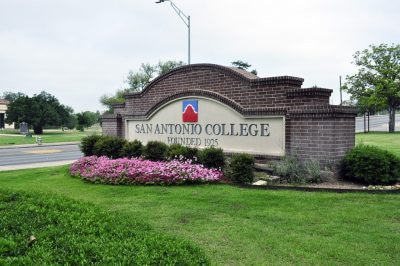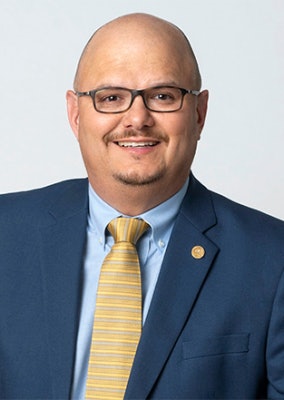San Antonio College (SAC) was selected as the winner of the 2021 Aspen Prize for Community College Excellence. The announcement came during a virtual award ceremony on Tuesday.

Broward College, San Jacinto College and West Kentucky Community and Technical College were given Finalist with Distinction awards. And Amarillo College was given the Rising Star award.
SAC will receive $600,000, with the other four schools each getting $100,000.
The Aspen Prize for Community College Excellence award is given every two years.
“In 2010, we launched the Aspen Prize with a few central goals,” said Josh Wyner, executive director or the Aspen Institute College Excellence Program. “We aimed to elevate community colleges through exemplars of excellence. We also strove to work with experts to define what excellence means. It’s more than getting students in the door but also making sure that they succeed. And finally, we see the Aspen Prize and saw it at the time, as a means to identify and replicate highly effective college-wide practices by adding to the body of evidence about what excellent community colleges do.”
For the prize, 150 community colleges are invited to apply. And of those, 10 are selected as finalists.
The prize criteria focuses on five areas: teaching and learning, degree and credential completion, transfer and bachelor’s degree paths, workforce and career help and equity.
“We assess all courses, all 2,300 core sections within one given semester,” said Dr. Robert Vela, the president of San Antonio College. “So part of the commitment is that every single faculty member, including adjuncts, full-timers, support personnel, spend time really looking at their data, making sure that they’re able to disaggregate the data around special populations, and ensuring what is it that we’re doing well and what is it that we’re not doing so well and what can we do to improve? When a faculty member or a cadre of faculty members demonstrate success in particular courses, we actually have them serve as coaches for others.”
The prize was funded by The Ascendium Education Group, the Joyce Foundation and the Siemens Foundation.
 Dr. Robert Vela, Jr.
Dr. Robert Vela, Jr.The ceremony included First Lady Dr. Jill Biden; U.S. Secretary of Education Dr. Miguel Cardona; and Dr. Freeman Hrabowski III, president of the University of Maryland, Baltimore County and Aspen Prize jury co-chair.
Cardona said that community colleges promote economic development and career pathways and create strategies that “meet students where they are.”
“You are engines of our economy and gateways to possibilities for the students who stand to benefit most substantially from the skills and the credentials they gain through your programs,” he said.
Biden – a community college professor for near 30 years – spoke about community college students and what can be done to help them succeed, mentioning the American Families Plan, which would make two years of community college free.
“The reason I love what I do is because of my students,” she said. “Veterans, single parents, first-generation students, refugees, they come from every walk of life. They are young students looking for a jumpstart and those coming back looking for a fresh start. They work multiple jobs and care for their loved ones. They often make enormous sacrifices to be in my class. Still, they don’t complain. Our students only ask for one thing: the chance to work hard and build a good life for themselves and their families.
“But we can give them more than that by removing the obstacles they face. We can make community college affordable so that they don’t have to go into so much debt.”
Williams-Brinkley said that 52% of students starting at SAC graduate or transfer within three years, compared to the national average of 46%.
“We always knew we were special,” said Vela. “We just needed to get the word out. We needed our community to believe us,” he added.
Arrman Kyaw can be reached at [email protected]





















